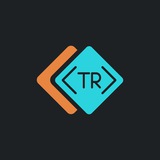One of the hardest parts in building architecture for your project is to choose the DB.
The most important criteria are: Community Support, Performance, Replication, Supported Data Types, Indexes, Security etc.
In today's post I want to add few links with comparing two most popular relational databases - MySQL and PostgreSQL:
hackr: https://hackr.io/blog/postgresql-vs-mysql
guru99: https://www.guru99.com/postgresql-vs-mysql-difference.html
fivetran: https://www.fivetran.com/blog/postgresql-vs-mysql
Official sites with documentations:
MySQL
PostgreSQL
For more useful info - subscribe Tech Read channel.
Likes and shares are welcome.
#database #mysql #postgresql
The most important criteria are: Community Support, Performance, Replication, Supported Data Types, Indexes, Security etc.
In today's post I want to add few links with comparing two most popular relational databases - MySQL and PostgreSQL:
hackr: https://hackr.io/blog/postgresql-vs-mysql
guru99: https://www.guru99.com/postgresql-vs-mysql-difference.html
fivetran: https://www.fivetran.com/blog/postgresql-vs-mysql
Official sites with documentations:
MySQL
PostgreSQL
For more useful info - subscribe Tech Read channel.
Likes and shares are welcome.
#database #mysql #postgresql
Hackr.io
PostgreSQL vs MySQL | Which RDBMS Is Best? (2024)
PostgreSQL vs MySQL, which RDBMS is best in 2024? Check out our head-to-head, inc. key features, differences, similarities, real-world use cases, and more.
Firebase is great but there are also many alternative backend-as-a-service solutions:
AWS amplify, Supabase, Nhost, MongoDB Realm, Appwrite.
Short video about pros and cons of each -
I tried 5 Firebase alternatives
Subscribe to the Tech Read channel to know more.
Likes, shares and recommendations are welcome.
#backend #firebase
AWS amplify, Supabase, Nhost, MongoDB Realm, Appwrite.
Short video about pros and cons of each -
I tried 5 Firebase alternatives
Subscribe to the Tech Read channel to know more.
Likes, shares and recommendations are welcome.
#backend #firebase
YouTube
I tried 5 Firebase alternatives
Firebase leads the backend-as-a-service space, but there are many popular alternatives like AWS amplify, Supabase, Nhost, MongoDB Realm, Appwrite, and Parse. Let's compare the pros and cons of fully-managed cloud services.
#database #vs #programming
NEW…
#database #vs #programming
NEW…
Database Sharding
***
Before you continue reading - subscribe to the Tech Read channel in Telegram.
Likes, shares and recommendations are welcome.
***
Database sharding is the “secret sauce” for scaling your applications. By dividing a database into smaller units called shards, we distribute the workload and storage across multiple servers.
Benefits:
1. Scalability: Handle more traffic by spreading the load across multiple servers.
2. Performance Boost: Achieve higher throughput and faster response times.
3. Fault Tolerance: Increase resilience with redundant shards.
4. Cost Optimization: Utilize cost-effective infrastructure with commodity hardware.
Challenges:
- Data Integrity: Ensure consistency across shards, especially during distributed transactions.
- Shard Management: Proper tools and automation are key for efficient administration.
- Data Rebalancing: Resource-intensive process when adding or removing shards.
Database sharding isn't one-size-fits-all, but with careful planning and testing, it's a powerful technique to unlock your application's potential. Scale up, stay efficient, and keep building!
PS. Link to the article ”A 5 years+ tech lead said they shard a database to scale but then he failed to answer this question” below.
#database #sharding
Links:
https://iorilan.medium.com/a-5-years-tech-lead-said-they-shard-a-database-to-scale-but-then-he-failed-to-answer-this-question-8be39115dcb0
***
Before you continue reading - subscribe to the Tech Read channel in Telegram.
Likes, shares and recommendations are welcome.
***
Database sharding is the “secret sauce” for scaling your applications. By dividing a database into smaller units called shards, we distribute the workload and storage across multiple servers.
Benefits:
1. Scalability: Handle more traffic by spreading the load across multiple servers.
2. Performance Boost: Achieve higher throughput and faster response times.
3. Fault Tolerance: Increase resilience with redundant shards.
4. Cost Optimization: Utilize cost-effective infrastructure with commodity hardware.
Challenges:
- Data Integrity: Ensure consistency across shards, especially during distributed transactions.
- Shard Management: Proper tools and automation are key for efficient administration.
- Data Rebalancing: Resource-intensive process when adding or removing shards.
Database sharding isn't one-size-fits-all, but with careful planning and testing, it's a powerful technique to unlock your application's potential. Scale up, stay efficient, and keep building!
PS. Link to the article ”A 5 years+ tech lead said they shard a database to scale but then he failed to answer this question” below.
#database #sharding
Links:
https://iorilan.medium.com/a-5-years-tech-lead-said-they-shard-a-database-to-scale-but-then-he-failed-to-answer-this-question-8be39115dcb0
